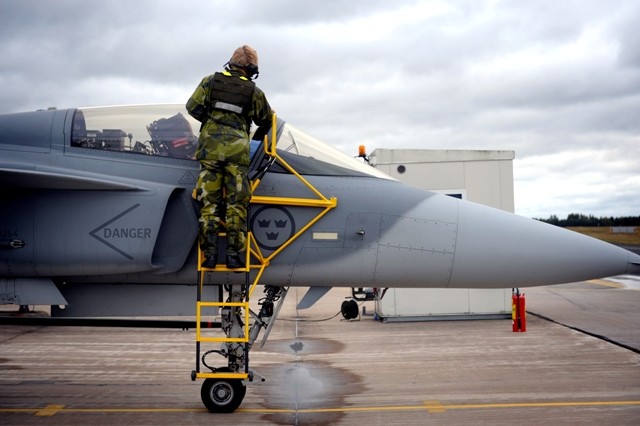|
Major General Karlis Neretnieks, who is a research fellow at the Swedish Defence Research Agency and the Institute for Security and Development Policy agreed with Lucas's criticism of NATO's abilities and said that Baltic States cannot increase their reliance on Nordic countries. Norway focuses mostly on crisis regulation and marine safety on the Barents Sea and hopes for cooperation with the United States; Sweden and Denmark have chosen participation in foreign missions such as Afghanistan, said Neretnieks about the readiness of Nordic armies. The Major General added that Finland has committed itself to military self-defence more than any other Nordic country. In addition to the different level of preparation of armies, the Major General noted that Nordic countries could know more about the defence abilities of the Baltic States and to cooperate more with Estonia, Latvia and Lithuania. Defending one's neighbours if necessary At the same time, the experts who participated in the discussion had a high opinion of the resolution adopted by Sweden last year that they would defend the Baltic States in the event of an attack. Major General Neretnieks believes that such military intervention should occur within the scope of a major operation as regionalised cooperation of Nordic countries would not be enough – the European Union or NATO is needed as a partner. Ambassador of Denmark to Estonia Uffe Balslev, who observed the discussions of experts, also agreed that the new defence cooperation of Nordic countries needs to be approached from the global angle, in cooperation with other democratic countries. Director of the 1st Division of the Policy Planning Department of the Estonian Ministry of Foreign Affairs Margus Kolga did not agree with the severe criticism voiced by Lucas, but he did admit that Article 5 of the alliance should be more visible, like the organisation of military training in the Baltic States. However, Kolga emphasised that Estonia does not have an alternative to NATO's protection. Two events were held in Tallinn at the initiative of the International Centre for Defence Studies where experts introduced and analysed the so-called Stoltenberg Report. The first of these, a seminar that introduced the report, was organised in cooperation with the Nordic Council of Ministers' Office in Estonia and gave the push to the other event, where Lucas and Neretnieks were among the participants. Margus Kolga from the Estonian Ministry of Foreign Affairs took part in both seminars. Large defence expenditure "At the time when defence expenditure on high technology is increasing at lightning speed, we have to consider the threat that our units will be too small and their efficiency will reduce to critical levels," said Senior Adviser to the Norwegian Ministry of Foreign Affairs and co-author of the Stoltenberg Report Sverre Jervell when speaking about the importance of the document in Tallinn. Jervell gave submarines as an example. They are so expensive that forming a joint unit would make more sense. Jervell characterised the proposals given in the report as the answer to regionalisation, which is raising its head in the whole world. The opportunity for such cooperation emerged after the end of the cold war. Sweden and Finland decided not to join NATO for historical reasons. Jervell reminded everyone that there are many countries that do not belong to NATO, but are still enthusiastic about it. There are also countries that do not belong to the European Union but cooperate closely with it, such as EFTA member Norway. The Stoltenberg Report contains 13 proposals about how Norway, Sweden and Finland could make their defence cooperation more efficient. The Report also highlights a Nordic stabilisation unit, amphibian unit, strike teams and surveillance systems at sea, crisis regulation unit and a unit for investigation of war crimes. |
Experts see Nordic-Baltic defence cooperation from the global angle
|
Lucas suggested that closer cooperation with Nordic countries is an option for strengthening the security of the Baltic States, but he did not consider it to be too realistic. |

 NATO and its ability to offer solid security guarantees to the Baltic States has recently been widely criticised. At the same time, the Stoltenberg Report recommends a broader foreign and security policy to Nordic countries. Experts debated whether changes in Nordic countries would help to fill the void in the Baltic States in Tallinn at the initiative of the International Centre for Defence Studies.
NATO and its ability to offer solid security guarantees to the Baltic States has recently been widely criticised. At the same time, the Stoltenberg Report recommends a broader foreign and security policy to Nordic countries. Experts debated whether changes in Nordic countries would help to fill the void in the Baltic States in Tallinn at the initiative of the International Centre for Defence Studies.